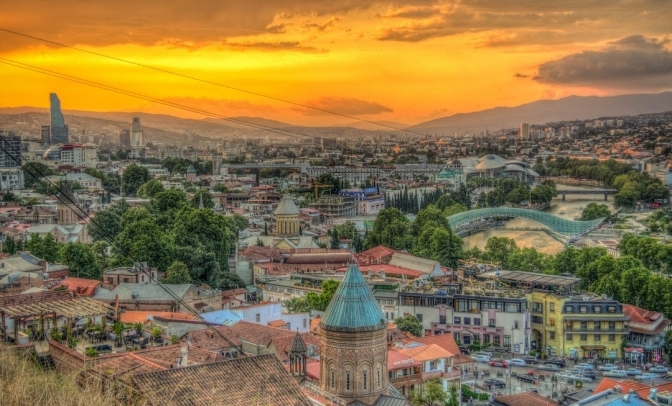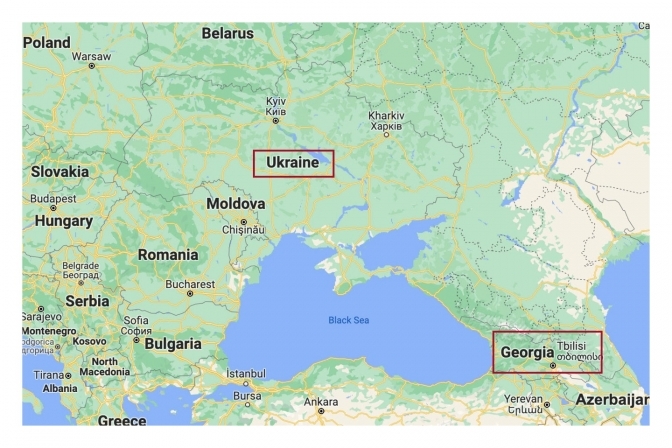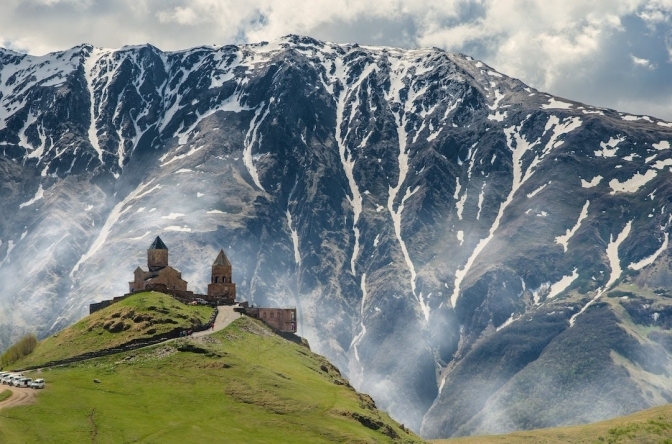
Tbilisi, the Georgian capital
by Vitalii Holich
I asked my friend his opinion about Russia’s aggressive foreign policy and current military build-up near the Ukrainian borders, how similar the Georgian situation was in 2008, and how it changed now. To preserve the personal data security, we keep the respondent’s name anonymous.
In April 2008, Russia-backed separatists in the region called South Ossetia bombed a car holding Georigan peacekeeper. The fighters soon began to shell Georgian villages, and the Georgian military responded and arrived in the capital of the mountainous region of South Ossetia. Many thought Russia had instigated the situation as a pretext for invading all of Georgia, the birthplace of Joseph Stalin.
Read more: «Georgian People Show Solidarity for Ukraine»
Moscow retook South Ossetia and then moved further into Georgian territory, displacing tens of thousands of Georgians. People in Tbilisi, the capital, felt invasion was imminent. Then, with a ceasefire brokered in part by French president Nicholas Sarkozy, things calmed down from 12 August 2008.
To this day, Russia supports the separatists in the regions of Abkhazia, along the Black Sea, and South Ossetia.
How did Georgians change their attitude to Russia after it occupied the regions of Abkhazia and South Ossetia in 2008?
After the Georgian-Russian war in 2008, «people had an adequate reaction and changed their attitude to Russia as a country, but not to its people. That’s because of economical ties that everyone here understands. Georgia is a touristic country, it constitutes a significant part of our economy, so people feel when Russian tourists come and when there’s a lot of them. In this sense, we’ve still managed to preserve relations with Russian people.»
Since July 2019, Moscow has banned direct flights with Georgia, forcing Russian tourists to fly through other countries to reach Georgia.
«Regarding the attitude to the Russian state and its authorities, all are unanimous. Obviously, there are pro-Russian people, as there may be in any other country in the West, but 90% understand the problem of Russian attitude toward us».
Is there a difference between regions, are some of them more or less pro-Russian?
«Our regions differ among themselves, as our country is divided between the sub-ethnical groups. We call them all Georgians, but there are Azerbaijanians, Armenians, Tatars, and they are quite less sensitive to the Russian topic, compared to the main Georgian population. I don’t know about [the Russian-occupied territories of] Abkhazia and South Ossetia, because we live separately with them and don’t keep contact for a long time.»

Is there now a feeling of potential war in Georgia and that the country might lose more territories, or are there plans to get back those occupied ones? How generally do Georgians perceive stability?
«We unanimously understand the problem of Russian expansion. But people differ regarding the rigidity of reaction we should make in relation to Russian provocations which still continue. We have a problem because the border with occupied territories is still moving.
«From 2008 to 2022, it changed significantly, as people from that side have been gradually moving the barricades a couple of metres deeper into our territory every night. It’s a loud topic, and people discuss how to respond to it. But there are many, including the government, who are maintaining the policy of preserving stability. People don’t want the situation of 2008 again, so they value a stable life.»

Kazbegi, Georgia. Russia is on the other side of the peak
What do you think about the situation with Russian troops near Ukraine, and is it possible that Russia can make it similar to Georgia? How do Georgians perceive the current Russian-Ukrainian situation?
«In 2008, we had no such informational capabilities to find out so quickly about the manoeuvres of Russian troops. Still, there were definite people on a higher level who were informed and could know about the mobilisation near our borders. In 2022, it can be seen better, and there are more warnings.
«And the expectations that predominate in the whole world, in the West and in our countries, are real because we know that Russians can do this [invade]. That’s also because their demands are connected to their military actions. Even though they say that there is no connection in it, we know that it’s simply not true, it’s just logical. So I think that the warnings are real.»
For Reference: About Georgia:
Wedged between Europe and Asia, Georgia called Sakartvelo in its native language is a country of 4 million people, with more than 1 million in the capital city, Tbilisi, known for its hot sulfur springs, its mix of whimsical ancient and inventive modern architecture, and its thriving tech scene.
Relatively small, ranked 119th by size (Ukraine is 45th), Georgia has a wide variety of landscapes: a subtropical Black Sea coast including beaches of black magnetic sand, the high mountains of the Caucasus range bordering Russia, the famed hills of the wine region of Kakheti.
It is widely considered the birthplace of wine, and in the years since independence from the Soviet Union, Georgians have recovered hundreds of varieties of grapes that had been lost due to Stalin’s insistence that only a few varieties be cultivated.
Georgians are known for their music, cuisine, and hospitality, especially for the supra, a regularly celebrated dinner with many shared dishes and a ritual of toasting led by a designated toastmaster, the tamada. The country featured prominently in Greek legends: Jason and the Argonauts landed on the Black Sea coast at Batumi; Prometheus commanded fire from the gods atop Kazbegi, the greatest mountain of Georgia’s Caucasus range.
In recent years some including the leader of the Georgian Orthodox Church and Salome Zourabichvili before she became president have advocated for bringing back the country’s ancient dynasty as a monarchy, to strengthen national majesty in the face of Russia’s extermination attempts.
Georgia’s president during the war with Russia was Mikheil Saakashvili, who strangely later became a Ukrainian citizen and governor of Ukraine’s Odessa oblast.
By Vitalii Holich
Follow Lviv Now on Facebook and Instagram. To receive our weekly email digest of stories, please follow us on Substack.
Lviv Now is an English-language website for Lviv, Ukraine’s «tech-friendly cultural hub.» It is produced by Tvoe Misto («Your City») media-hub, which also hosts regular problem-solving public forums to benefit the city and its people.












